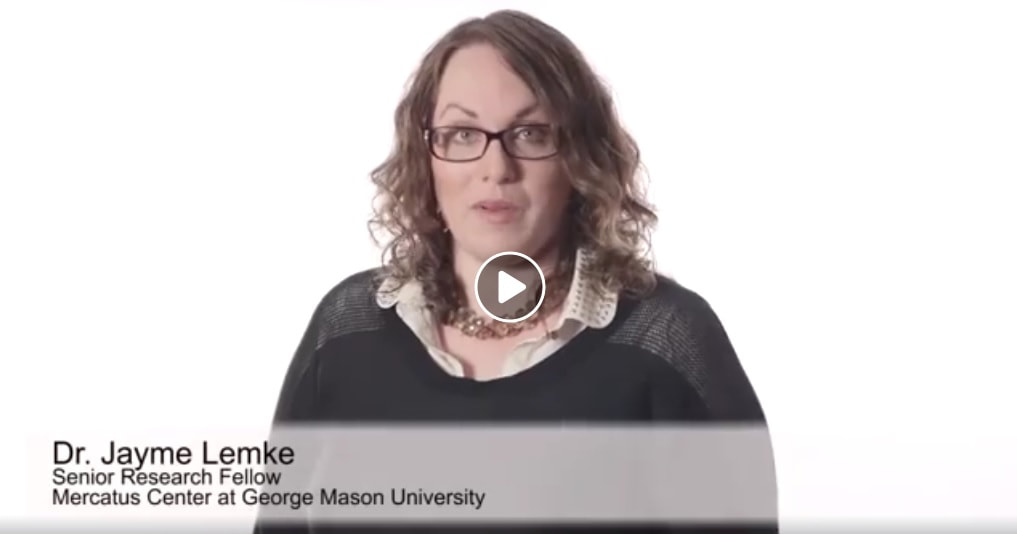|
In this podcast I talk women's rights with two of my best friends, who both just happen to be brilliant economists with lots of fascinating thoughts to share on the subject: https://soundcloud.com/hayekprogrampodcast/what-does-economic-freedom-look-like-for-women-rosemarie-fike-stefanie-haeffele-jayme-lemke
In this podcast, Pete Boettke and I have a sometimes very silly time talking about my background in music, the culture of the economics profession, and what economics can contribute to the study of women's rights: https://soundcloud.com/hayekprogrampodcast/lectures-in-economic-sociology-peter-boettke-jayme-lemke
Ideas in Progress podcast, hosted by Anthony Comegna, available at https://soundcloud.com/user-22948988/episode-5-lemke-lebar-mixdown.
"Conceiving of policy as something that enables people to bring their best to their communities requires a fairly radical change in mindset. Instead of deferring to the “experts,” the research of Elinor Ostrom and Vincent Ostrom suggests that people not only can but should and will be active in solving their problems for themselves. Further, embracing our potential to create rules and solve problems for ourselves is our greatest opportunity to turn towards freedom and away from governmental overreach and political oppression." Read the rest at Libertarianism.org.
Thank you to the Institute for Humane Studies for inviting me to share my research with Peter Boettke and Liya Palagashvili for this mini-doc on community policing. "Richard Wagner’s latest book is not about James M. Buchanan. At least not in the way you’d expect given the title: James M. Buchanan and Liberal Political Economy: A Rational Reconstruction. Wagner has written elsewhere that economics is a discipline that “deals with thoughts, not with things,”[i] and he has stayed true to that approach here, writing an intellectual biography that is about Buchanan’s ideas first and his work and person second." Read the rest at The Vienna Circle.
Elinor Ostrom, Laurel Thatcher Ulrich, and learning to see the women who have shaped the world3/31/2017
"However, to the extent the focus of history has been on the grand feats of statesmen and scholars, the historical exclusion of women from formal political and educational systems has diminished the record of their impact on the world. A failure to recognize the importance of social history, including that of enterprise and political organization at the local level, has often gone hand in hand with a failure to recognize women’s contributions." Read the rest at Learn Liberty.
"As the American economy continued to grow over the course of the 19th century, opportunities for women to work outside the home continued to expand. The expansion in the range of external options opened new frontiers to women across the country, both in terms of the practical decisions they were able to make and the ideas they were able to encounter. This expanding range of experience proved fertile ground for expansions in women’s rights that would continue to take place through the 20th century." Read the rest at Learn Liberty.
This video and more were created as part of a Learn Liberty on-demand course, Feminism: A New Perspective. Enrollment is free and you can start any time.
|
